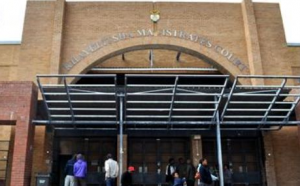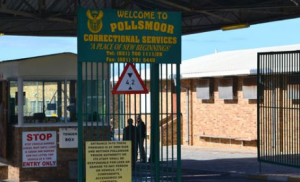Ubuntu Scholarship: South Africa (Part 1)
Benjamin Burns tell us about his summer experience volunteering at a clinic in Cape Town and at the University of the Western Cape. But first a bit about him:
I studied for the GDL and BPTC at City, receiving major scholarships for both, after completing a Philosophy degree at the University of York, including an exchange year at the University of California. I’m currently working as a full time instructor of law at a state school in East London, whilst maintaining my involvement with organisations like Lincoln’s Inn and the FRU. I hope to obtain pupillage in the next round of applications.
Introduction
In June 2015, Simon Crowther, Fred Saugman and myself were awarded the Ubuntu Scholarship by the City Law School and the Human Rights Lawyers Association. The Scholarship provided us with the opportunity to spend August 2015 working in Cape Town, with the Legal Aid Clinic, at the University of the Western Cape (hereinafter, ‘the Clinic’ and ’UWC’).

The Clinic provides legal representation and services, in a wide range of legal matters, to poor and marginalised communities. It is run by local attorneys, trainee attorneys, and senior law students. Its main office is situated on the UWC campus, but it also has a satellite office in the township of Khayletisha.
This report provides a reflective account of my time at the Clinic, and the Western Cape more broadly.
Day to Day Work at the Main Office
The majority of our time at the Clinic was spent assisting its senior student volunteers, who manage the day to day case load of the Clinic, as part of their legal education. The Clinic provides an invaluable way for the students to develop their legal skills in a clinical setting, as they are assessed on their ability to provide legal advice, conduct conferences, take witness statements, and draft legal documents.
From our first day at the Clinic, we were allowed to sit in on the students’ conferences with clients, and within the first few days, I had observed conferences and round table discussions involving divorce and child custody proceedings, property disputes, and issues of inheritance. This provided me with valuable insight into some areas of South African law which, being a common law system, is often similar to English law.
Yet more valuable was the insight that I was afforded into the lives of some of the poor and marginalised communities of the Western Cape. Many of the clients I met were in desperate situations, as a result of the socio-economic issues that they faced. Many of them were also willing to share their views on why those socio-economic issues were present.
Observing the student volunteers handle their clients’ issues sensitively and professionally was a lesson in itself. I was especially impressed by the way in which one of the student volunteers dealt with a client who was confused and emotional as to why he was not entitled to any of his mother’s property, when she died intestate. The client’s stepfather was lawfully entitled to take everything, as his marriage to the deceased meant that he was automatically entitled to half, and as the value remaining was less than 125,000 Rand, the client was not entitled to what is known as a child’s portion. The client was in a desperate situation, as he was living homeless, and caring for his sister, who was ill from HIV. The client also claimed that his mother made an oral promise that her children could continue to reside at the property she shared with her husband, after her death. Needless to say, the circumstances were upsetting, but the student volunteer was exceptional in her ability to marry empathy with the need for dispassionate legal analysis.
As Fred, Simon and myself became more familiar with the workings of the Clinic, we were often asked to draft particulars of claim, witness statements, summonses, settlement agreements and wills. I found this to be a challenging and useful way to apply and develop the skills that I had developed on the Bar Course.
Mitchell’s Plain County Court
The Clinic’s trainee attorneys, who may be likened to pupils or trainee solicitors, were kind enough to allow us to spend a couple of days with them, at Mitchells Plain County Court. Mitchells Plain is one of the Western Cape’s largest townships, and although it is no longer officially designated as a ‘Coloured Township’, it remains that the vast majority of its inhabitants are ‘Cape Coloureds’ (the name given to an ethnic group composed primarily of persons of mixed race. Although they are a minority within South Africa, they are the predominant population group in the Western Cape).
As soon as we arrived at the court, the poverty of the townships was made clear. On each day, we saw about twenty cases, all at various stages. A large number were first appearances, during which the vast majority, if not all defendants, applied for legal aid. The Clinic’s trainee attorneys would then approach the defendants, to clarify the charge against them, take an indication of plea, and make sure that they were entitled to legal aid. The defendants were then either taken back down to the cells, or granted bail.
During a court break, we spoke with the attorneys about the legal aid process, and discovered that people were entitled if they earned under 5500 Rand, and had under 100,000 Rand in irremovable property, equalling about £225 and £5000 respectively. We also spoke with some of the prison guards, mostly about corruption within the African National Congress, and its strategy of targeting townships for votes, by promising things such as increased literacy, but then not delivering. We also learned that the prison system is so badly funded, that there is little to no stratification. This means that if someone is unable to afford, say, a fine of 300 Rand (approximately £15), for a minor crime, then they may be sentenced to a short term in Polsmoor Maximum Security Prison. As Polsmoor is rife with gang violence, the cycle of crime is kept alive.
We were also taken down to the cells, which were full. They were cold, bare, crowded, and pungent. I am glad to have had the experience, but a few minutes was more than enough: I hope that I never feel comfortable looking through bars at another human being, unless I am there to provide them with legal services.
When court resumed, the judge handed out a number of sentences, mostly for minor crimes. Most of the defendants required the services of an Afrikaans translator, and in approximately half of the cases, either a mediation agreement had been made between the parties, or the complainant was absent from court.
The sentencing hearings were interesting and informative, in the sense that a lot of what I had learned about aggravating and mitigating circumstances, as well as different types of sentences, was played out. One case in particular stands out, as it involved a nineteen year old girl, charged with unlawful possession of marijuana. The judge was extremely candid with the defendant, and most of the focus was on her personal circumstances. The judged asked the defendant, again and again, why she was destroying her future, and became quite emotional. I was quite taken aback by the judge’s ‘motherly’ approach, as I had not seen it before. The judge also gave detailed reasoning for handing out a fine, suspended by three years. Even though the defendant and her family could afford the fine, the judge took into account the defendant’s claim that she intended to become a police officer, as well as the fact that it would be her grandparents who paid the fine, thereby undermining its purpose as a deterrent. Lastly, the case stood out because the judge ruled that the defendant was allowed to possess a firearm, due to her (as yet unrealised) intention to train as a police officer. To be frank, I was appalled by the judge’s ruling on this issue, as approximately three quarters of violent crime in Western Cape townships involves firearms.



